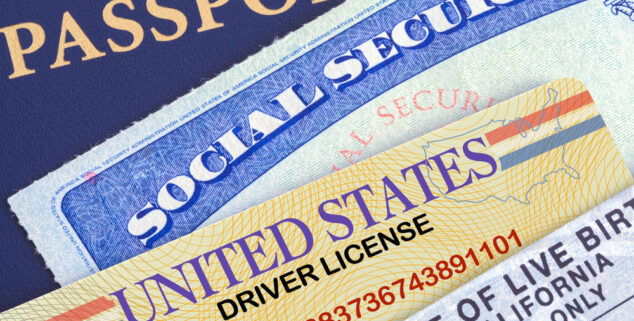News
Will third time be the charm for bill on diacritical marks?
 Photo by Mega Pixel via Shutterstock
Photo by Mega Pixel via ShutterstockWhen Nancy Chaires Espinoza and her husband chose the name Nicolás for their newborn son in 2016, they never thought they wouldn’t be able to put it on his birth certificate.
But that’s what happened due to the interpretation of an obscure California law regarding the use of diacritical marks (accents, tildes and other marks indicating pronunciation) on vital statistics records. The hospital would only record the name as “Nicolas” without the accent over the “a.” Espinoza can’t understand why the state won’t correctly write names.
To correct this problem, she is supporting Assembly Bill 77, which would require the California Dept. of Public Health, which oversees vital statistics, to use such marks on birth and death certificates and marriage licenses.
“My hope is that lawmakers have progressed in their understanding of how important these issues are,” she said.
The issue affects not only Spanish names but names in Russian, Hebrew, Vietnamese and other languages that use diacritical marks. Without the marks, the names have very different meanings. For example, the Vietnamese names Phúc (happiness) and Bích (emerald color) can look like English words with negative connotations.
The prohibition against diacritical marks dates back to 1986 when the state’s voters passed Proposition 63 declaring English as the official language. Prior to that, the state did include diacritical marks on records. While the law does not expressly prohibit using the marks, it has been interpreted that way.
In 2017, Espinoza supported Assembly Bill 82, which would have allowed the marks, but then-Gov. Jerry Brown vetoed it.
“Mandating the use of diacritical marks on certain state and local vital records without a corresponding requirement for all state and federal government records is a difficult and expensive proposition,” he said in his veto message. “This bill would create inconsistencies in vital records and require significant state funds to replace or modify existing registration systems.”
A letter from Monica Wagoner, then-Deputy Director of Legislative and Governmental Affairs at the California Dept. of Public Health, spelled out the concerns in more detail. She pointed out that federal agencies do not allow diacritical marks on federal records or systems, including on passports. Using the marks in California records “would likely increase inaccuracies not only in data entry but ultimately in identification of individuals.”
“California is the cradle of technological innovation…It’s hard to accept that this is a burden the state can’t overcome.”
Wagoner added that county clerks, not the state, issue marriage licenses and all have their own systems.
“A reprogramming estimate of $200,000 per county was provided with an estimated cost of $11,600,00 for all 58 County Clerks to issue marriage licenses with diacritical marks,” she said.
No opposition has emerged so far to AB 77. Espinoza wonders whether making the change to add diacritical marks would really be that costly and believes that accurately recording names is worth dealing with any challenges that may come up.
“California is the cradle of technological innovation,” she said. “It’s hard to accept that this is a burden the state can’t overcome.”
Democratic Assemblymember Blanca Pacheco, who is sponsoring AB 77, said she was surprised to learn about the prohibition of diacritical marks. Not using the marks can sometimes change the meaning, she said.
“It’s a different governor and a different time so I’m optimistic that we can get it done this time around,” she said.
Among her supporters are Jaime Jarrín, the former longtime Spanish-language radio play-by-play broadcaster for the LA Dodgers. Jarrín, whose last name is pronounced “Ha-reen,” said it bothers him that his nephews use the Anglicized pronunciation of their name. He said they got tired of correcting people all the time. Jarrín has seen a similar situation with Hispanic baseball players. “It used to hurt my ears when I heard public announcers mispronounce their names,” he said.
Major League Baseball addressed the problem with its “Ponle Acento” (Spanish for “put the accent on it”) campaign in 2016. The goal was to show respect for Latino players by correctly spelling their names on their jerseys.
Names are important because they are often the one thing that stays the same during ever-changing circumstances, Jarrín said. Letting people accurately record their names is the right thing to do, he said.
For Espinoza, spelling names correctly should be a no-brainer in this current era. “It seems important to do this if we’re as committed to inclusion and celebrating diversity as we claim to be,” she said.
Want to see more stories like this? Sign up for The Roundup, the free daily newsletter about California politics from the editors of Capitol Weekly. Stay up to date on the news you need to know.
Sign up below, then look for a confirmation email in your inbox.

Leave a Reply